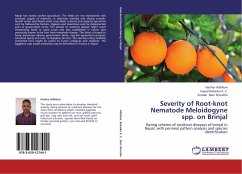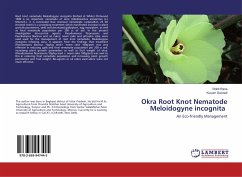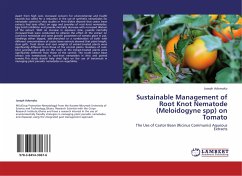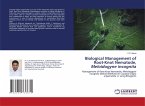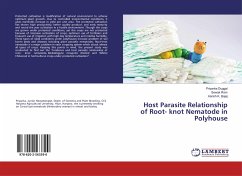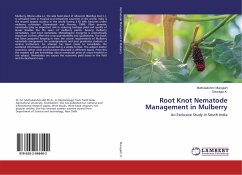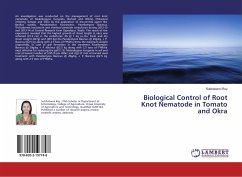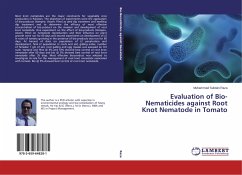Nepal has mostly rainfed agriculture. The fields are not maintained with constant supply of moisture, ie alternate wetting and drying prevails. Runoff water and floods enter crop fields. Internal and external qurantine cant be followed by farmers. Hygiene and cleanliness cant be implemented even at government farms. The spread of rootknot disease might reach threatening levels in some crops and also established in newer sites previously known to be free from nematode disease. The thesis is hoped to bring awareness among government farms, ngo-led agricultural projects, educated layety and even to Nepalese farmers. The severity rating modality presented here might be useful to future collegues and students. The eggplant crop based enterprise may be benefitted in future in Nepal.
Bitte wählen Sie Ihr Anliegen aus.
Rechnungen
Retourenschein anfordern
Bestellstatus
Storno

